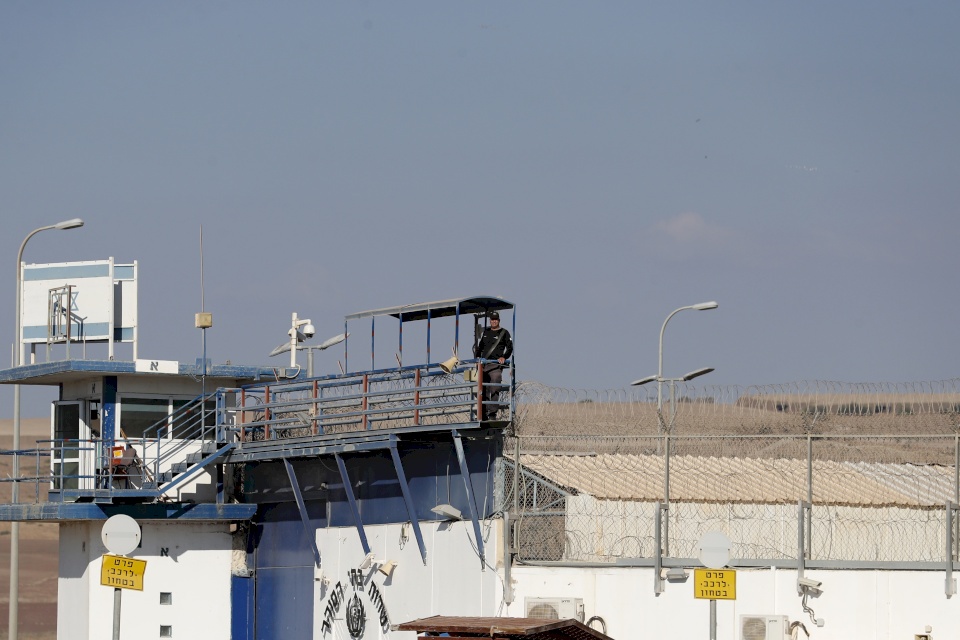
Martyrdom of a Palestinian Prisoner from Jenin Camp in the Israeli "Asaf Harofeh" Hospital
SadaNews - The General Authority for Civil Affairs informed the Prisoners and Released Prisoners Affairs Committee and the Palestinian Prisoners Club about the martyrdom of the detainee Mahmoud Talal Abdullah (49 years old) from Jenin Camp, in the Israeli "Asaf Harofeh" Hospital.
The occupation had arrested him on February 1 of this year, and after his arrest, his health condition deteriorated significantly. It later turned out that he was suffering from cancer. He was transferred from "Megiddo" prison to "Gilboa" prison, and then to the "Ramla Prison Clinic". Despite medical examinations confirming that he had advanced-stage cancer, the occupation refused to release him and kept him detained until he was martyred a day after being transferred to Asaf Harofeh Hospital.
The committee and the club confirmed that the crime of Abdullah's martyrdom adds to a series of compound crimes committed by the occupation system as part of its policy of killing prisoners and detainees, within the framework of the ongoing genocide against the Palestinian people.
They considered this crime a direct extension of what hundreds of released prisoners have recounted in testimonies documenting torture crimes and systematic violations, which are considered crimes against humanity and war crimes, and confirm that what is happening inside prisons is part of a comprehensive genocide campaign.
With the martyrdom of detainee Mahmoud Abdullah, the number of martyrs from the prisoner movement and detainees since the beginning of the genocide war has risen to (79) martyrs, who are only those whose identities have been recognized, amidst the continued crime of enforced disappearance affecting dozens of detainees. This phase in the history of the prisoner movement witnesses the highest rates of bloodshed since 1967, with the number of martyrs from the prisoner movement whose identities have been recognized to date reaching (316) martyrs, according to documented data from prisoner institutions, bringing the number of prisoners whose bodies are being held before and after the war to (87) corpses, of which (76) are after the war.
The two institutions emphasized that the accelerated pace of martyrdom among prisoners and detainees in this unprecedented manner reaffirms that the Israeli prison system is continuing to implement a policy of slow death against them, as a month no longer passes without a new martyr being recorded among them. With the continuation of daily crimes inside the prisons, the number of martyrs is likely to increase, given that thousands of prisoners are held in conditions lacking the most basic elements of life, and are subjected to continuous systematic violations, including: torture, starvation, physical and sexual assaults, medical neglect, and the spread of infectious diseases topped by scabies (Sarcoptes), in addition to unprecedented looting and deprivation policies that are severe in their impact.
This is aside from the field executions that have targeted dozens of detainees, and the images of the bodies that have recently been delivered after the ceasefire serve as witnesses and decisive evidence of the level of crimes committed against dozens of prisoners and detainees in the field.
The committee and club held the occupation authorities fully responsible for the martyrdom of detainee Mahmoud Abdullah, and they renewed their call to the international human rights system to take effective measures to hold the leaders of the occupation accountable for the war crimes committed against the prisoners and the Palestinian people.
They also demanded the imposition of clear international sanctions that isolate the occupation, restore to the human rights system its fundamental role for which it was established, put an end to the horrific state of impotence it has suffered during the genocide war, and terminate the exceptional immunity that international powers continue to grant the occupation, as if it were a body above the law and accountability.

"The General Assembly" overwhelmingly adopts a resolution affirming the Palestinian people...

Israel Fears Similar Attacks to the Sydney Attack

President Abbas Issues a Presidential Decree Merging the Ministries of Finance and Plannin...

International Criminal Court Rejects Israel's Request to Halt Gaza War Investigation

Heavy Rains Flood Displaced Persons' Tents in Gaza, Causing Injuries

A Boy Martyred by the Gunfire of Occupation Forces in Bethlehem

Jordan's King Emphasizes the Need to Adhere to the Gaza Ceasefire Agreement and Stop Israe...

